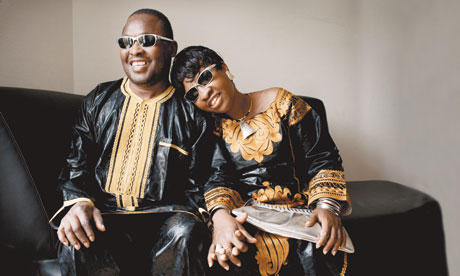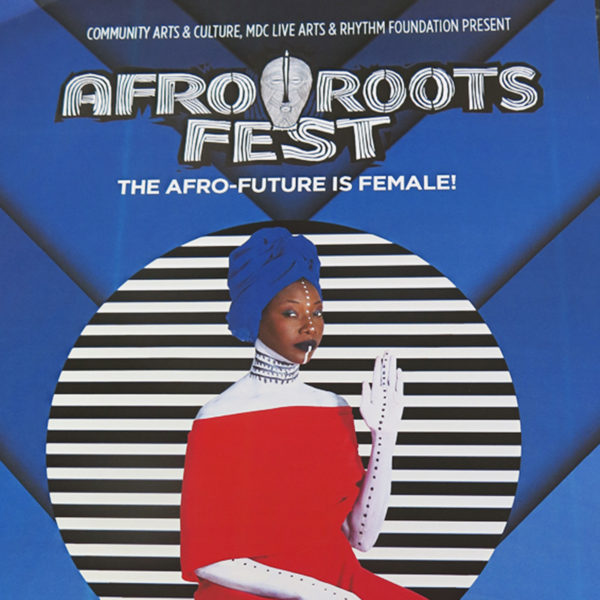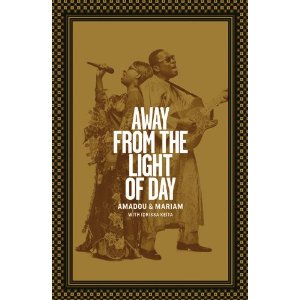Contributor David Taylor recently sat down with the duo to find out all the exciting stuff they've been up to in their busy musical lives. You can read more from Taylor at Soul of a People.
The celebrated duo of Amadou and Mariam from Mali are a one of kind musical collaboration. Not just because of their unique, style of music but also because they’re both blind. However, since forming in the '80s, the duo have let very little get in the way of their desire to create music and bring it to the masses.
Nowadays, the duo are busier than ever. Amadou and Mariam find themselves less at home in Mali than they are on the road touring. For every one month in Mali, the two are on the road for three or four months. In addition to their rigorous tour schedule, the duo have announced plans for a series of “concerts in darkness,” to give audiences a different sense of how they experience music. If that wasn’t enough, they recently published a memoir of their youths, Away From the Light of Day, about how they both dealt with blindness from childhood, how they met at Bamako’s Institute for Blind Youths, and how they launched a career in music, with no griot family ties to pave the way. I started by talking about the book.
Amadou: The book is for understanding our lives from when we were young, what got us interested in music, and the different phases up to now. Even if you start from a point a little out of the ordinary, when you have determination you can get to do a lot of things.
People are curious about our music and it’s been well received. The book talks about how Mariam and I met at the institute and then went to Cote d’Ivoire, that Cote d’Ivoire was a platform for us, that’s where all the musicians who resisted went. The book talks of our debut in Mali, how our parents encouraged us, and how the institute of young blind people encouraged us in our marriage and way of life, and way of playing music also. The institute was where Mariam and I found each other, and began making music together. We were called Amadou and Mariam from then till now. So I think the book covers a lot of our youth.
David Taylor: In the book you explain, “In Mali, we have a sort of cousinship network, called sanangougnan in Bambara, between the clans. They are constantly teasing each other, making fun, and telling funny stories about each other.” That goes back hundreds of years to King Sundiata, of the Malian Empire. Did you find that network and those friendly rivalries helped or hurt your advancement as musicians?
Amadou: That history of ethnicities and clans did not especially help us, and it didn’t hurt us at all. When we are with the Peuls, we feel very good when the Peuls say jokingly, ‘Ah the little Bambara have come!’ ‘No,’ we say, ‘the little Peuls are here.’ That’s a facility, it very much is an easy sanangougnan. You can’t do anything bad, can’t put up a barrier. It obliges you to open a door to pass through. So it facilitates a lot overall.

Related Audio Programs










